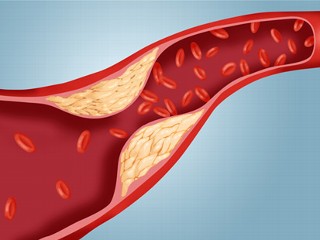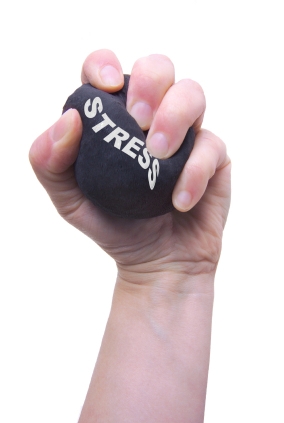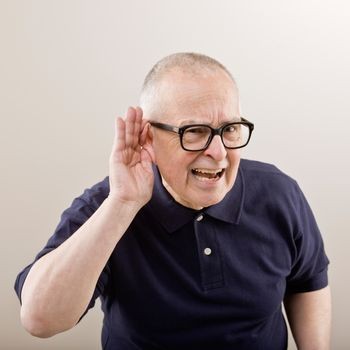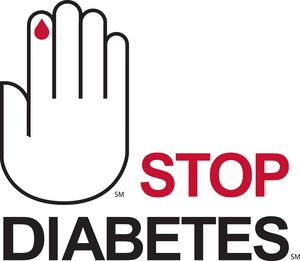 Healthy aging is a hot topic for baby boomers everywhere. Whether you’re concerned about weight gain, sex drive or chronic diseases, the key to healthy aging is a healthy lifestyle. Eating a variety of healthy foods, practicing portion control and including physical activity in your daily routine can go a long way toward promoting healthy aging. Better yet, its never too late to make healthier lifestyle choices.
Healthy aging is a hot topic for baby boomers everywhere. Whether you’re concerned about weight gain, sex drive or chronic diseases, the key to healthy aging is a healthy lifestyle. Eating a variety of healthy foods, practicing portion control and including physical activity in your daily routine can go a long way toward promoting healthy aging. Better yet, its never too late to make healthier lifestyle choices.
Category: Wellness
How can you avoid stress?
 Stress is a fact of life for most people. You may not be able to get rid of stress, but you can look for ways to lower it.
Stress is a fact of life for most people. You may not be able to get rid of stress, but you can look for ways to lower it.
You might try some of these ideas:
- Learn better ways to manage your time. You may get more done with less stress if you make a schedule. Think about which things are most important, and do those first.
- Find better ways to cope. Look at how you have been dealing with stress. Be honest about what works and what does not. Think about other things that might work better.
- Take good care of yourself. Get plenty of rest. Eat well. Don’t smoke. Limit how much alcohol you drink.
- Try out new ways of thinking. When you find yourself starting to worry, try to stop the thoughts. Work on letting go of things you cannot change. Learn to say “no.”
- Speak up. Not being able to talk about your needs and concerns creates stress and can make negative feelings worse. Assertive communication can help you express how you feel in a thoughtful, tactful way.
- Ask for help. People who have a strong network of family and friends manage stress better.
via Stress – Manage Your Stress, Measure Your Stress, and Reduce Your Stress.
Lowering LDL Cholesterol
 Do you know your cholesterol numbers? They are too high for more than half of all American adults. The culprit is LDL cholesterol—low-density lipoproteins, the bad kind—in their blood. Manufactured by the liver, cholesterol is a critical building block of cell walls, hormones, and digestive juices. But overly high LDLs are a major cardiovascular risk. Along with liquified fat, dead cells, and other cellular trash, they can form deposits within the walls of the coronary arteries; as these deposits, or plaques, grow, they may bulge into the artery, interfering with blood flow. If one ruptures and a clot forms, a heart attack or stroke is likely. If you haven’t had your cholesterol checked with a quick blood test, now would be a good time. Adults are advised to get their levels tested at least once every five years.
Do you know your cholesterol numbers? They are too high for more than half of all American adults. The culprit is LDL cholesterol—low-density lipoproteins, the bad kind—in their blood. Manufactured by the liver, cholesterol is a critical building block of cell walls, hormones, and digestive juices. But overly high LDLs are a major cardiovascular risk. Along with liquified fat, dead cells, and other cellular trash, they can form deposits within the walls of the coronary arteries; as these deposits, or plaques, grow, they may bulge into the artery, interfering with blood flow. If one ruptures and a clot forms, a heart attack or stroke is likely. If you haven’t had your cholesterol checked with a quick blood test, now would be a good time. Adults are advised to get their levels tested at least once every five years.
Smoking Cuts Life Short
Tobacco use is the leading preventable cause of death.
Worldwide, tobacco use causes more than 5 million deaths per year, and current trends show that tobacco use will cause more than 8 million deaths annually by 2030.
In the United States, tobacco use is responsible for about one in five deaths annually (i.e., about 443,000 deaths per year, and an estimated 49,000 of these smoking-related deaths are the result of secondhand smoke exposure).
On average, smokers die 13 to 14 years earlier than nonsmokers.
Are You Getting Enough Sleep?
The amount of sleep a person needs depends on many factors, including age. For example, in general:
- Infants require about 16 hours a day
- Teenagers need about 9 hours on average
- Most adults need 7 to 8 hours a night for the best amount of sleep, although some people may need as few as 5 hours or as many as 10 hours of sleep each day
- Women in the first 3 months of pregnancy often need several more hours of sleep than usual
However, experts say that if you feel drowsy during the day, even during boring activities, you haven’t had enough sleep.
via Sleep Deprivation Effects and How Much Sleep We Need: Babies, Teens, and Adults.
Driving is a Privilege not a Right
 Driving is a privilege. A driver’s license gives you a certain level of freedom, but it also gives you an enormous amount of responsibility. When behind the wheel this responsibility comes in many forms:
Driving is a privilege. A driver’s license gives you a certain level of freedom, but it also gives you an enormous amount of responsibility. When behind the wheel this responsibility comes in many forms:
• Wearing safety belt
• Driving sober
• Focusing on the road
• Driving defensively
A lot of responsibility comes with a driver’s license. You have to drive safely, obey the traffic laws, and respect the rights of other drivers. Not only should you concentrate on your own driving, you should also be well aware of the other vehicles around you. Driving safely also includes how and where you park your car. Passengers in your car put their safety in your hands and expect you to drive safe as well.
Avoid Fast Food – How to Shop for Groceries
Stress Management: How to Reduce, Prevent, and Cope with Stress
 HOW TO REDUCE, PREVENT, AND COPE WITH STRESS
HOW TO REDUCE, PREVENT, AND COPE WITH STRESS
It may seem that there’s nothing you can do about stress. The bills won’t stop coming and your career and family responsibilities will always be demanding.
But managing stress is all about taking charge: of your thoughts, emotions, schedule, and the way you deal with problems.
via Stress Management: How to Reduce, Prevent, and Cope with Stress.
Prevent Type 2 Diabetes
Prevent Noise-Induced Hearing Loss
 Noise Induced Hearing Loss is serious. Some 30 million people are at risk in the workplace, in recreational settings, and at home. In fact, it is the second most self reported work-related illness or injury. Already, 22 million American adults ages 20 to 69 have permanently damaged their hearing from exposure to loud sounds.
Noise Induced Hearing Loss is serious. Some 30 million people are at risk in the workplace, in recreational settings, and at home. In fact, it is the second most self reported work-related illness or injury. Already, 22 million American adults ages 20 to 69 have permanently damaged their hearing from exposure to loud sounds.
via Prevent Noise-Induced Hearing Loss: Have WISE EARS! for Life! [NIDCD Health Information].




